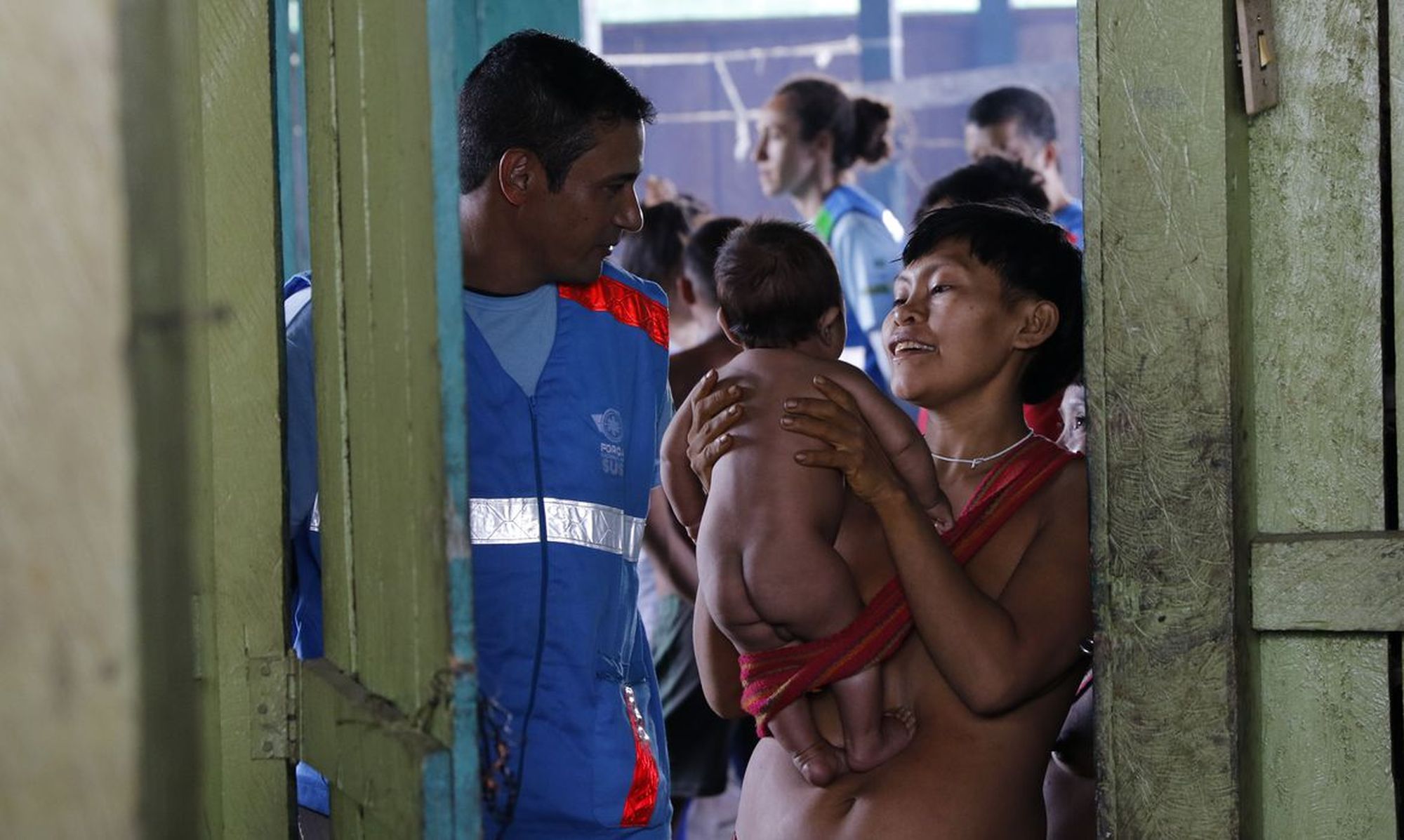Fourteen Yanomami children diagnosed with severe malnutrition and who are being monitored by the Indigenous Health Support House (Casai) in Boa Vista, in the Brazilian northern state of Roraima, gained weight and evolved to moderate conditions. The number represents 78% of a total of 19 children of the ethnic group, aged between 6 months and 5 years, monitored by health teams due to severe malnutrition.
“Even though it is just a sample of the total population of malnourished children, it is a sign that the commitment of the teams and the strategies adopted so far work and can be replicated”, evaluated the Ministry of Health.
Treatment utilizes formula-based protocols and guidelines. The folder highlighted that adherence is a challenge, since the use of this type of food is not part of the Yanomami culture. Teams carried out a kind of active search within Casai so that the formulas were administered properly and at defined intervals – some every three hours and others every four hours.
The next steps, according to the ministry, are the progressive expansion of treatment for children with similar conditions at Casai itself and adaptations at the base poles, avoiding the removal of children and allowing them to be treated within the Yanomami territory.
“This will happen gradually as the numbers of professionals are increased, as well as their qualifications, and should be agreed within the scope of the COE [Center for Emergency Operations in Public Health] Yanomami for the next few weeks. The very serious conditions continue to be treated in reference hospitals in the region.”
“The water is sick”
“The water is sick everywhere across the land.” Those were the words used by indigenous leader Júnior Hekurari Yanomami to describe just one of the aspects of his people’s predicament: the lack of drinking water in western Roraima and northern Amazonas, in North Brazil.
Júnior Yanomami, who is also chair of the Yanomami and Yek’uana Indigenous Health District Council, explained that the water bodies in Yanomami lands are contaminated by heavy metals used in illegal gold extraction. Scarce water, he noted, is a serious problem facing the indigenous people at this time.
“Water is vital for the life in the communities. And there’s no water, as we see. It’s all contaminated. There’s only mud. We’ve been talking about food provisions, but we also need a water supply system for the communities,” he said.
On a visit to the Surucucu region last week, our reporting team came across indigenous people asking for clean water. “It’s a lot of dirty water. We drink and our stomachs hurt,” said Ivo Yanomami, leader of the Xirimifik community.
The government must create an urgent project to assist the villages, Júnior Yanomami argued. “The water should reach the communities. There are many of them, and nowhere to get the water from,” he remarked. “The water needs to be healed. The communities need to be healed.”
Research foundation Fiocruz has identified ties between malnutrition and the consumption of water in inadequate conditions in two Yanomami villages in Amazonas. The researchers are now looking for ways to provide drinking water to these people.
In a statement, the Ministry of Development and Welfare, Family, and Fight against Hunger report that “technicians are considering the best method and technology for water storage in the region. The solution must efficiently address their needs and respect the knowledge and customs of the Yanomami people.”
Census halted
The Brazilian Institute of Geography and Statistics has reduced the pace of operations in Yanomami indigenous lands due to police actions and humanitarian emergencies. However, the work has not been completely suspended, the institute reported.
Some teams are still active in areas with access by river or land or with no ongoing police operations.
In contrast, data collection was suspended in mining areas, where the police are still active, due to risks to census takers. The same happened in areas accessible only by aircraft, because of the priority given to the use of this equipment for airlifts and supplies transported to the indigenous territory.
ABr






